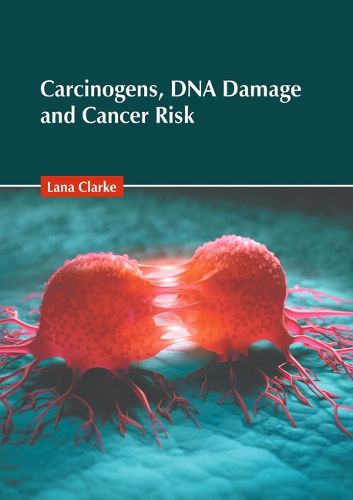Readings Newsletter
Become a Readings Member to make your shopping experience even easier.
Sign in or sign up for free!
You’re not far away from qualifying for FREE standard shipping within Australia
You’ve qualified for FREE standard shipping within Australia
The cart is loading…






Carcinogens are substances or organisms that have the potential to cause cancer. DNA damage may be caused due to alterations in cellular metabolism and interference with normal cell functions. Carcinogens can be classified into two types, namely, activation dependent and activation independent. Classes of carcinogens like nitrosamines, ionizing radiation (IR), and alkylating agents that do not need molecular modification to cause DNA damage are known as activation-independent carcinogens. Activation-dependent carcinogens such as polycyclic aromatic hydrocarbons (PAHs), heterocyclic aromatic amines (HAAs), N-nitrosamines, mycotoxins, and aristolochic acid (AA) require bioactivation in host cells to convert them into reactive intermediates. These carcinogenic metabolites or reactive intermediates have the potential to cause genotoxic effects. Exposure to DNA-damaging carcinogens like combustion of cigarette during smoking leads to lung cancer. The major carcinogens found in tobacco smoke include carcinogenic PAHs and tobacco-specific nitrosamines. These carcinogens play a complex role in the development of cancer, DNA damage, and the risk of cancer. A number of latest researches have been included to keep the readers up-to-date with the global concepts in this area of study.
$9.00 standard shipping within Australia
FREE standard shipping within Australia for orders over $100.00
Express & International shipping calculated at checkout
Carcinogens are substances or organisms that have the potential to cause cancer. DNA damage may be caused due to alterations in cellular metabolism and interference with normal cell functions. Carcinogens can be classified into two types, namely, activation dependent and activation independent. Classes of carcinogens like nitrosamines, ionizing radiation (IR), and alkylating agents that do not need molecular modification to cause DNA damage are known as activation-independent carcinogens. Activation-dependent carcinogens such as polycyclic aromatic hydrocarbons (PAHs), heterocyclic aromatic amines (HAAs), N-nitrosamines, mycotoxins, and aristolochic acid (AA) require bioactivation in host cells to convert them into reactive intermediates. These carcinogenic metabolites or reactive intermediates have the potential to cause genotoxic effects. Exposure to DNA-damaging carcinogens like combustion of cigarette during smoking leads to lung cancer. The major carcinogens found in tobacco smoke include carcinogenic PAHs and tobacco-specific nitrosamines. These carcinogens play a complex role in the development of cancer, DNA damage, and the risk of cancer. A number of latest researches have been included to keep the readers up-to-date with the global concepts in this area of study.